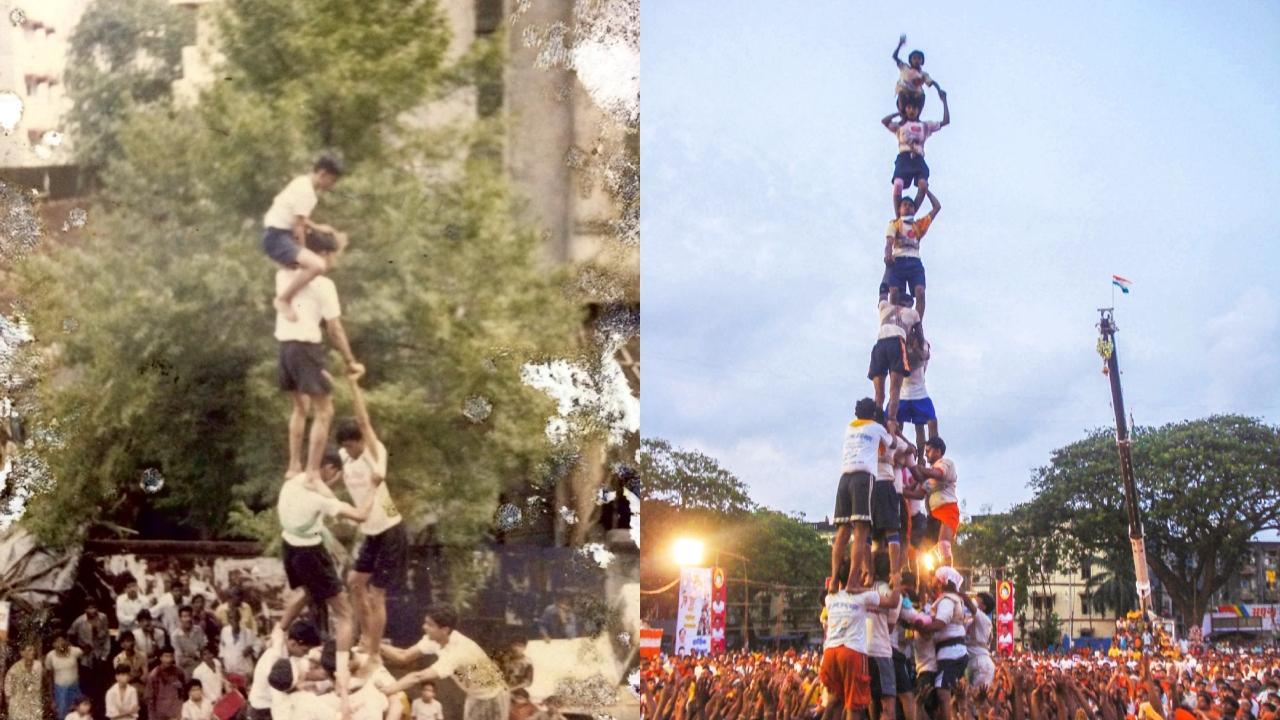Dahi Handi 2023: Byculla-based Govinda Pathak celebrates 100 years in Mumbai

In a significant milestone, the Byculla-based Dahi Handi Govinda Pathak has completed a century of celebrations, marking a rare achievement among the Dahi Handi pathaks in Mumbai. This pathak, known as the Bal Gopal Govinda Utsav Mandal today, was started by textile mill workers residing in the Lalbaug and Byculla neighborhoods and has been dedicated to the practice and performance of Dahi Handi for nearly three generations.
According to the members of the Mandal, the roots of this Pathak trace back to Marathi people from Roha, Mangaon, Chiplun, Sangameshwar, Lanja, and Rajapur in the Raigad and Ratnagiri districts. They migrated to Mumbai and settled in a chawl in Byculla, famously known as “Gavlayachi Chala” (Villagers` Chawl).
MP Sunil Tatkare`s uncle Vasudev Tatkare (also known as Vasu Master), was a jobber who recommended many workers in the mill. Vasudev Tatkare was one of the founding members of this Pathak with the help of the mill workers.
“The Yadav Gawli community of Roha, Mangaon, and Indapur taluk came and settled in a chawl here in Mumbai’s Byculla. Earlier, the chawl was famous with the name “Gawlyachi chawl” (Villagers’ chawl). The Yadav Gawli community started celebrating the birth anniversary of Lord Shri Krishna here about a hundred years ago and named it “Govinda of Gawlyachi chawl”. Later, it was named Bal Gopal Govinda Utsav Mandal,” said Shardul Kharpude, member of the Mandal.
Over the years, as Mumbai`s urban landscape evolved and many Govinda mandals in the vicinity disbanded, this pathak persevered through countless challenges to uphold the tradition. Shardul Kharpude, a member of the Mandal, recollects the early days when Govindas would traverse different areas of the city to celebrate the Dahi Handi festival. He notes that starting from 1992-93, the Govindas began traveling across Mumbai using trucks and buses for their celebrations.
The pathak`s journey has seen a transformation from human pyramids with five tiers to impressive pyramids reaching six or seven layers. Kharpude expresses the pathak`s determination to nurture and pass on this religious and cultural heritage inherited from their forefathers.
“We are determined to grow and carry forward this religious and cultural heritage handed over to us by our forefathers. While the nature of celebrating the festival has changed in the last hundred years, the passion and enthusiasm associated with the festival remains the same,” Kharpude added.

Atul Tiwari is a seasoned journalist at Mumbai Times, specializing in city news, culture, and human-interest stories. With a knack for uncovering compelling narratives, Atul brings Mumbai’s vibrant spirit to life through his writing.





